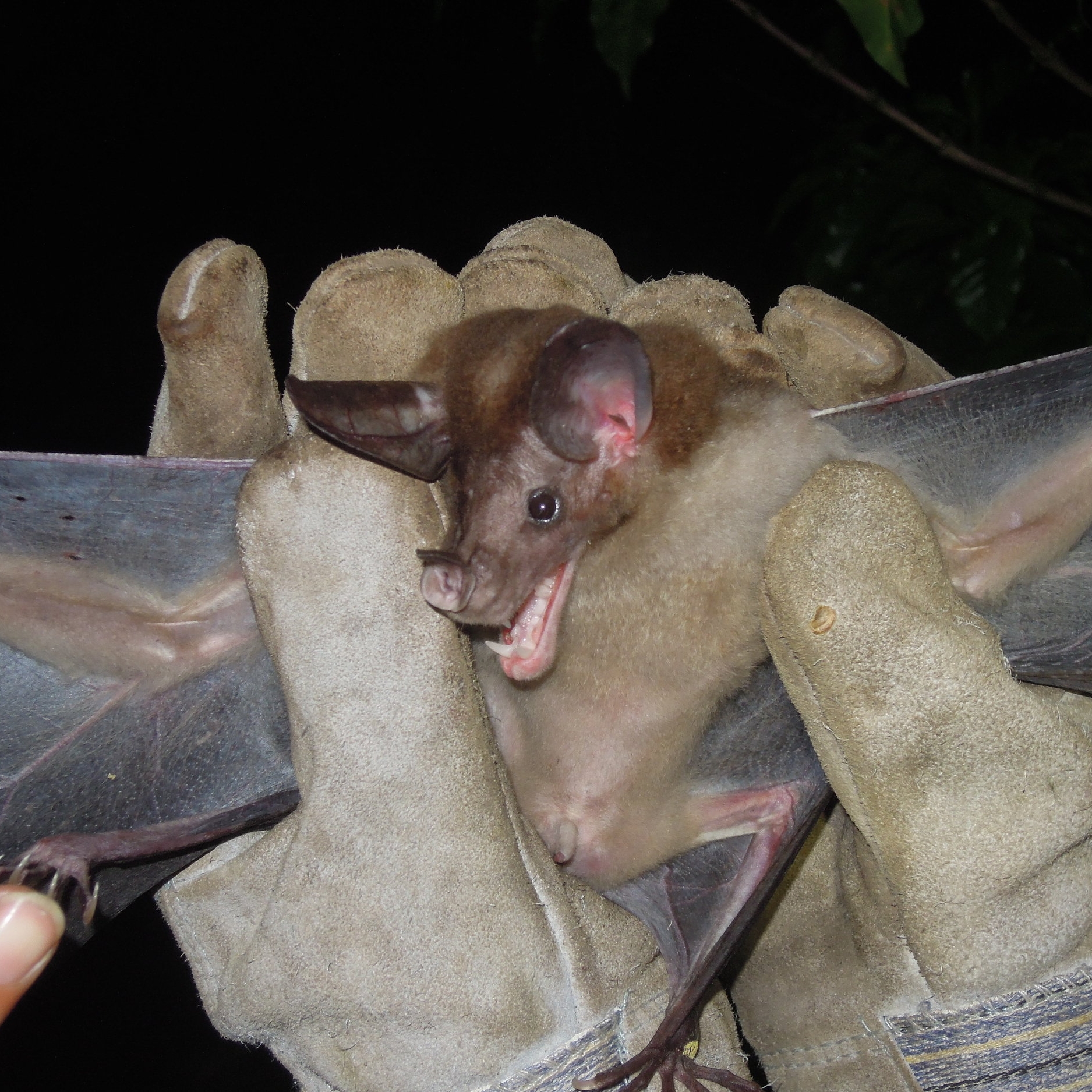Bat immune evolution in its ecological and evolutionary context
Bats seem to have a special relationship with viruses -- they can be infected and even spread infections that kill humans with seemingly no disease themselves. Our research seeks to understand how host ecology and biogeography have impacted disease exposure and immune evolution across bat evolution.
Bat disease ecology
Bats can host a number of zoonotic (transmissible from animals to humans) pathogens but they are also incredibly important for ecosystem function. Part of our research seeks to understand how host characteristics and habitat disturbance impact the infections bats have (and could potentially spread to humans) and their immunity and stress. We also seek to understand the global distribution of bat-associated infections. Our primary field site is in Ecuador at the FCAT field station.
Bat adaptive immunity
Despite their importance for disease and hypotheses that bats have a special immune system, little is known about how they form responses to specific pathogens. A major thrust of the lab focuses around elucidating how different species of bats generate diversity in their adaptive immune responses, especially their B cell receptors. We also investigate adaptive immune responses in specific infection contexts, particularly with rabies virus. We are also interested in the evolution of adaptive immunity more generally.



